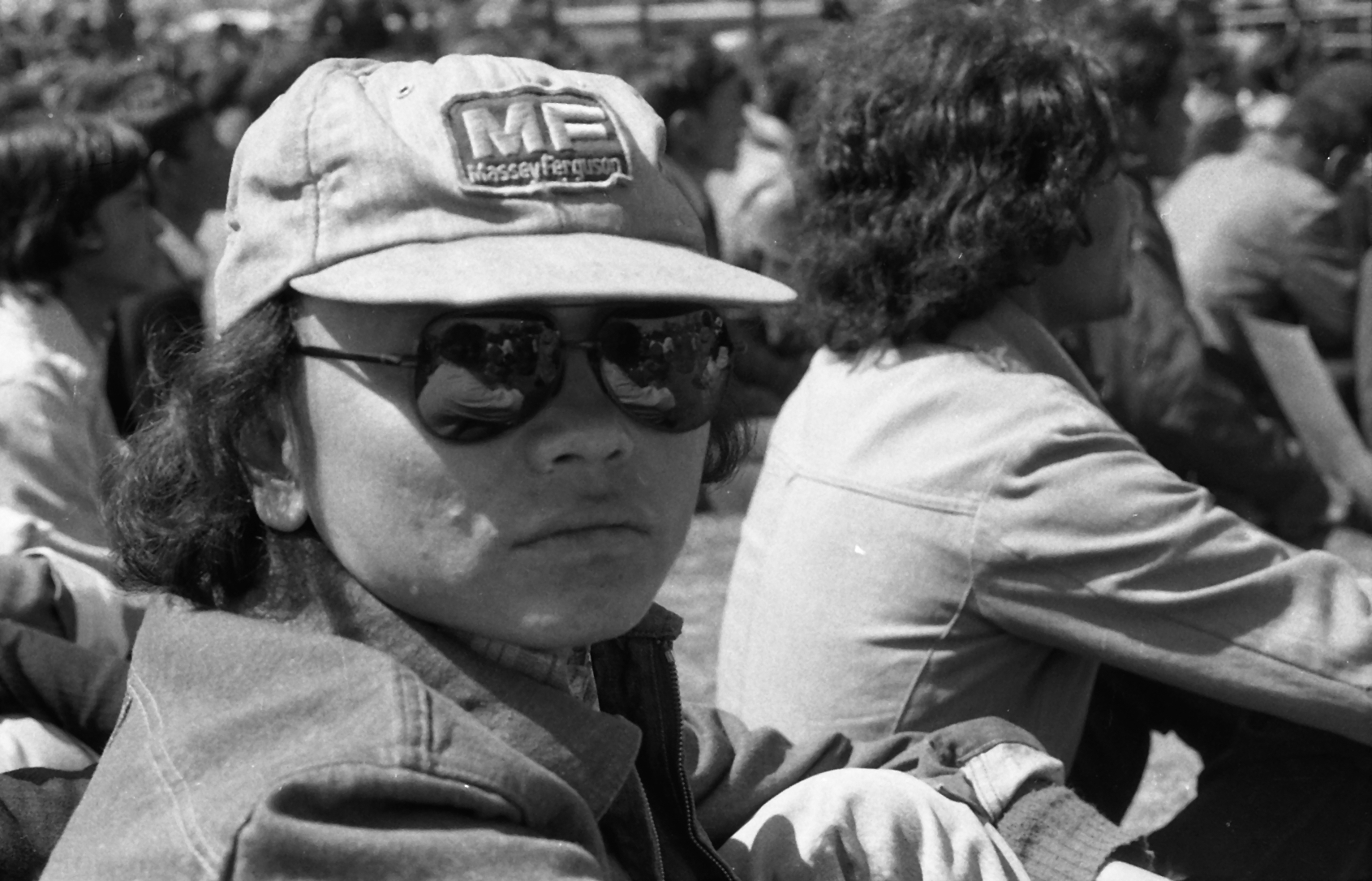
We got off on the wrong foot.
I met Tsering Wangyal-la in 1968 when I was working at the Bureau of H.H. the Dalai Lama at Delhi. Three junior officials had come down from Dharamshala to fly to Britain for further studies. In my capacity as assistant education secretary (temp) at the Bureau, I was tasked with arranging their passage to London. There were three of them –– Tashi Wangdi (yes, the former kalon), Tsering Wangyal and Gendun Thupten. When I met them at the dining-room of the Bureau that evening, I couldn’t help noticing their contrasting heights. Tashi Wangdi was very tall, Tsering Wangyal middling and Gendun Thupten short. I couldn’t help myself and made a facetious remark. “You know what the guy receiving you at London airport’s going to say? ‘Here are three Tibetans of assorted sizes.’ Ha, ha.” Years later when I got to know Tsering Wangyal he told me he thought I was a patronizing idiot. Well, I was eighteen.
Tsering Wangyal was born in Kalimpong on March 6, 1949. His father was a Khampa from Drayab. His mother was Lhasa born. Tsering was the oldest of nine siblings. Their family lived at Topkhana by the 11th Mile on the yak-caravan road that led to Pedong and eventually to the Jelep-la (zalay-la) pass and Tibet. Tsering attended the Kumudini Homes High School and graduated in 1966.
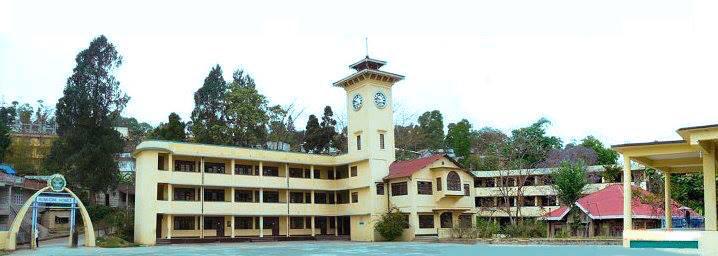
The next year he went to work in Dharamshala at the Religious Department. In 1968 he was selected for further studies in Britain with two other young officials. After passing his GCE-A levels he studied history at the University of Bristol, graduating in 1973. On returning to Dharamshala, Tsering Wangyal resumed work in the exile administration and in 1976 took over the editorship of the Tibetan Review, when the previous editor Dawa Norbu left for Berkeley to work on his doctorate.
In the following years I got to know Tsering Wangyal intimately. Tsering’s takeover of the Tibetan Review coincided with momentous political events, not only for the world but for Tibetans as well: the end of the Cultural Revolution, Nixon’s trip to China, the death of Mao, the arrest of the Gang of Four, Deng Xiaping, Liberalization of China’s economy and, most important of all for us, the opening up of Tibet.
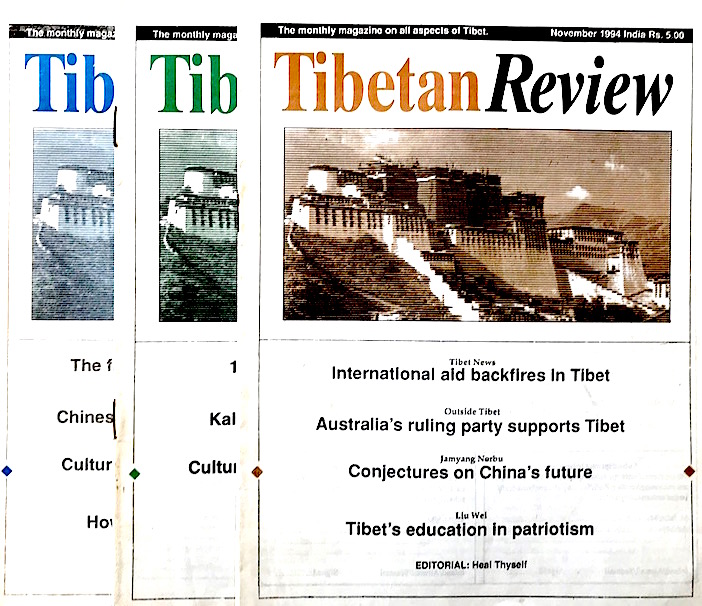
That was also around the time I began writing my political commentaries on Tibet and China (a selection of which was re-issued two years ago by High Asia/Black Neck and) and which put me in close contacts with the new Review editor Tsering Wangyal. I will not go into my writings –– suffice to say that that were largely directed at exposing the limits of Deng’s Liberalization policy and the naïveté of Dharamshala’s hopes for meaningful negotiations with Beijing.
Editor’s political view largely coincided with my own. His own editorials and articles encompassed a wider field of issues, but he was ready to take on the exile government and other players over political questions he felt they had mishandled or neglected. Editor allowed me a great deal of latitude on content but was strict about facts and copy-editing.
A friend and fan, Thupten Samphel-la, described Tsering’s idiosyncratic writing method, style and but also his underlying journalistic skill and integrity: “Editor used his massive office Remington typewriter with thundering rage. He pulled no punches, both against what he perceived as Tibetan government bungling and China’s unrelenting assault in Tibet. In the end the image remains of Editor, shirtless, pounding on the Remington typewrite with his rapid, flowing two fingers, to produce his spontaneous, angry editorials which became the delight of the public and dismay of authorities.”
Perhaps I should explain why the Tibetan Review, though owned by the Information Department of the exile-government, tolerated my critical writings and Tsering’s sharp editorials. First of all Tsering had insisted on editorial independence when he took over, and the secretary of the Information Department, Zeychutsang Sonam Topgyal, fully supported him on this. The Kashag ministers then, though gentlemen of the old school, saw the value of a critical English language journal, if only to demonstrate to supporters in the West, that we were committed to press freedom and democracy. Only later when the Kashag was headed by reactionaries like Juchen Thupten Namgyal and Samdhong Rinpoche, was this enlightened modus vivendi done away with.
My relationship with Tsering Wangyal-la transcended journalism. He and I shared a love of books, music, movies and theatre, though in India then, the last was virtually unavailable. But sometimes we were lucky and I remember the two of us attending and enjoying a Barry John production of Peter Shaefer’s Amadeus at New Delhi. Editor was a fan of progressive rock and had many LPs (vinyls) of Emerson, Lake and Palmer, The Incredible String Band, Pink Floyd, the Stones and the Beatles. Editor was also a classical music devotee and owned large collection of Beethoven, Mozart, Sibelius and other records.
Tsering also had a wicked sense of humor and was an indispensable fixture at all Dharamshala gatherings. His witticisms permeate Another Place, as does his enthusiasm for a party, a card game (paglu), or a cold bottle of Golden Eagle. Since readers will be delving into the novel after finishing this introduction, no more needs to be said about Tsering Wangyal’s first venture into fiction writing. I am sure this talent would have flowered after his retirement to Toronto, but which was, sadly, cut short by his untimely death at the age of fifty-one.
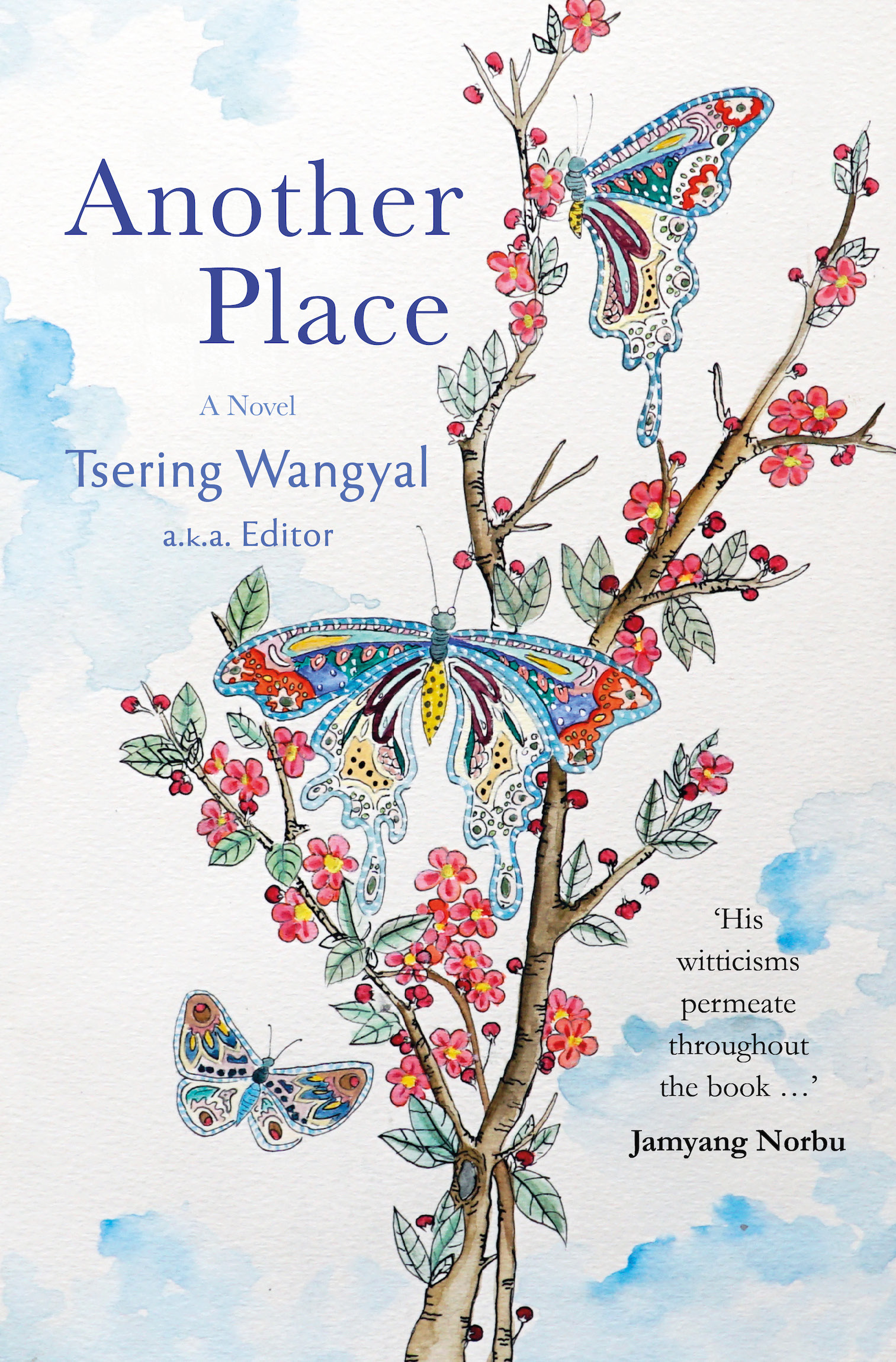
I would like to thank Editor’s brother Tsering Dorje-la, for letting me have the only copy of editors typed manuscript, and to Bhuchung Sonam la of Black Neck publications for initiating this project to bring Editor’s novel out to the Tibetan reading public. I must also thank all of Editor’s friends: “Gentleman” Tsering Dhundup, Sonam Dahla “Bidhar”, Dechen & Sonam Ratu and also Tse-Dorje la who contributed financially to the printing of the book.
In conclusion I want to offer a big thank you (in advance) to anyone volunteering to undertake a project to collect Tsering Wangyal’s editorials and assorted prose writing –– not forgetting the droll piece about his first Red Sox game when interning at the Quincy Patriot Ledger (under an Alfred Friendly Press Fellowship) in 1986. Such an anthology is way overdue, if only to commemorate the journalistic skill and integrity of the longest serving editor (20 years) of the most important Tibetan news magazine –– every issue of which was eagerly awaited by the exile community in India and abroad.
Jamyang Norbu
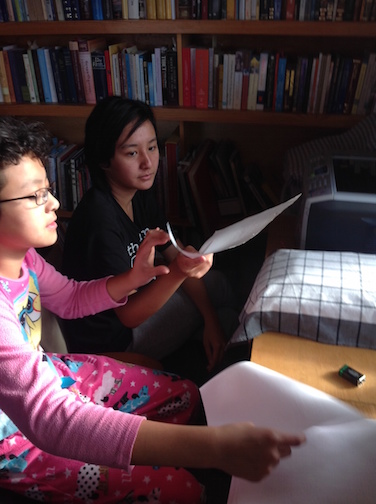

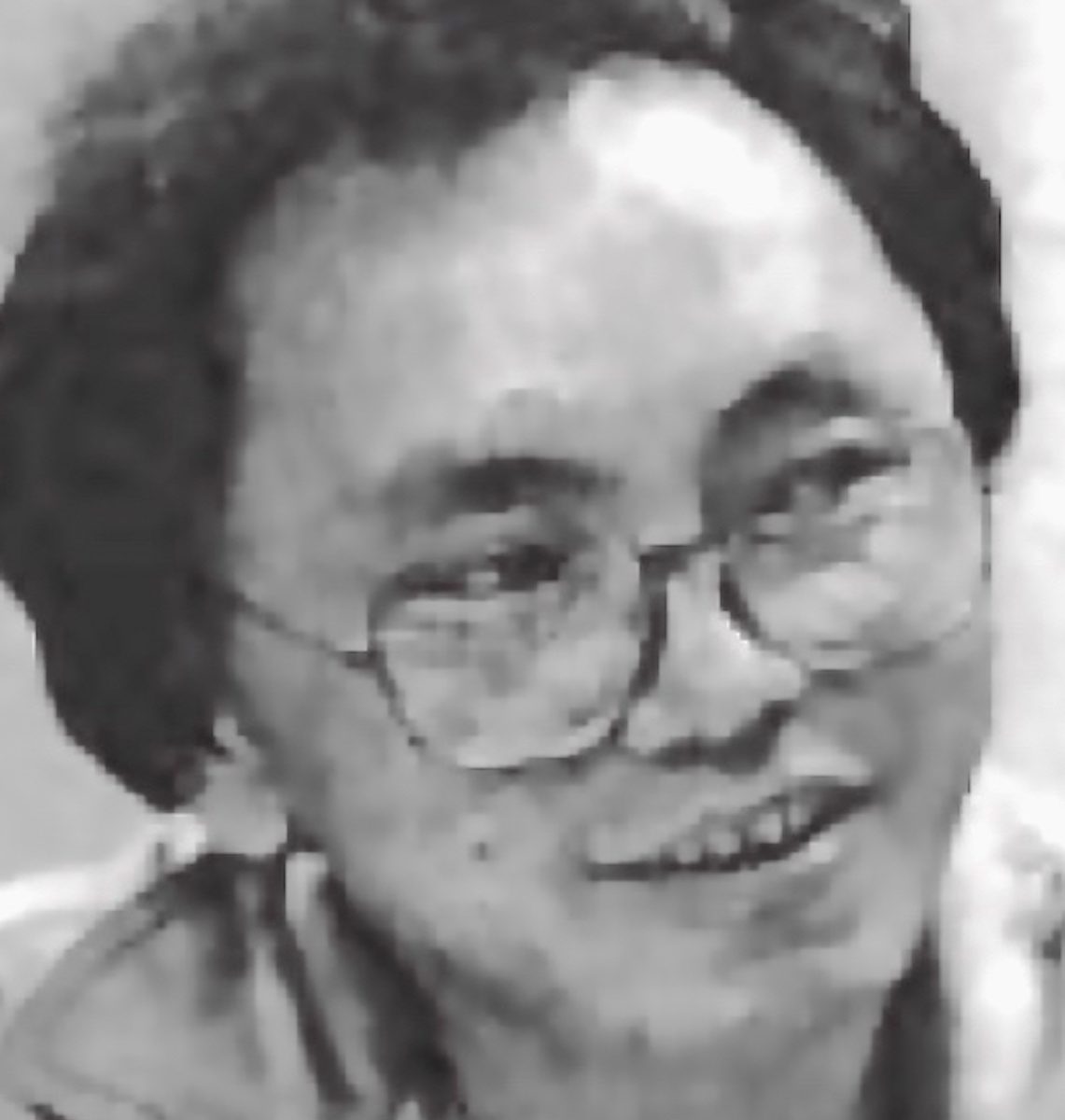

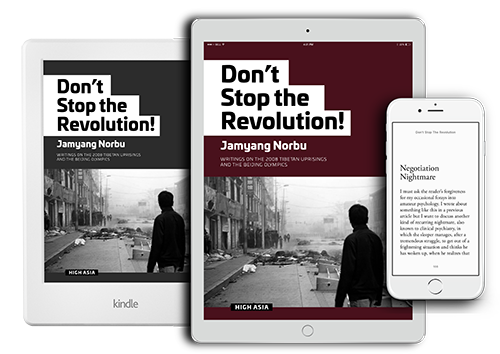
Everyone!! If you want to comment you don’t have to sign in
Tenzing Chhodak and I went to see off Editor at the New York Greyhound bus station to Buffalo, NY then Editor would move on to Toronto. Prior to that three of us went for drink. We were tipsy 🤪.
Editor had a small antique trunk. He said that’s all he has to carry but Greyhound driver wouldn’t let him take it as carry-on luggage. So, I argued with the driver but Editor said, “Just let it be. I will put there. If it is lost, I have less to carry to Toronto.”
After about three months, he emailed me that I should come and visit him as he rented a big apartment. Unfortunately, that didn’t materialize. He passed 😢 away.
Lhakpa la, thanks for your memories.
Thanks Jamyang Norbu la, I was a great fan of editor Tsering Wangyal la, I love his writing style and his writeups. I was wondering about his early lives and his background. Thanks today I got to know about his life.
🙏
Thank you so much for all the things you done for Tibet…
You’re special always
🙏
Dear Jamyang la,
This is a wonderful introduction to my Jho la’s book!
I found the manuscript amongst his effects when I was in Toronto in the wake of his passing. It seems strange that, I am now older than he was young then. I had no idea what to do with the manuscript. As luck would have it, the author of The Mandala of Sherlock Holmes, sleuthed out the “lost” manuscript’s whereabouts, did his “jadu” on me into accepting his proposal.
Jamyang la, please accept my heartfelt thanks for initiating and seeing this project through to completion. I am very glad Another Place, at long last, will see the light of day.
I’d like to extend my gratitude to all the supporters of this project especially your beautiful daughters.
Much love
My pleasure, Tsedor-la.
🙏
Tsering la,
where can we get a copy?
Hi Pema la,
On Dec 29 2020, the publisher Blackneck Books said the book will be out “next week”. Please check with them at blackneckbooks@tibetwrites.in
Happy new year to all!
I am in the middle of Thubten Samphel-la’s ‘Falling Through the Roof.’ Our Editor-la makes a brief appearance in the novel. Entertaining and beautifully written. Applause to the great writer.
It was only few weeks ago while browsing through fb chanced upon this novel Another Place. More anxious to read not just what Editor la has written about but what JN has to say in the introduction. I must thank you for making this intro/brief bio available on your website for all to devour.
I was searching all over the place online to purchase a copy. My effort proved fruitless when I found none. Can JN please make the copy available on his website so we can purchase and read on iBook? when we live in the world of technology, this exercise seems like a possibility, especially when we have come this far.
Also awaiting your long overdue ‘Echoes from Forgotten Mountains: A Literary Journey into the Memories of Tibet’
Thanks in advance.
What a treat to see this book published!
I was lucky enough to call Tsering Wangyal – Editor – a friend around 35 years ago. I first met him at the hostel in Jor Bagh where he was living and where he and his companions would thrash me hollow at Scrabble despite my posh English education, before settling down to watch Star Wars and Monty Python. He showed me around his room…. “here’s my kitchen” in one corner, “here’s my office” (large desk covered in papers, typewriter and so on), “my library, my dining room”, and so on, til, to my astonishment he opened a cupboard to show me his record collection which tallied almost exactly with mine. Editor’s room was a hub for the Tibet movement, and his friendship and the evenings spent chatting to people from all over the world who gathered there to talk about Tibet, China, human rights, and life, were very special and an inspiration that has remained with me. It’s no coincidence that I have been involved in campaigning ever since, and during those years of environmental crusading have put what I learned from Editor into practice, using the power of the written word to get that message across, and understanding the importance of making connections. I never forgot Tibet and now the circle is complete as for the last eight years I have been privileged to edit Contact magazine.
We’d all talk til the small hours and then he’d walk me to the corner and put me in a rickshaw to get me home to wherever I was staying. On my last night there he and his friends took me on a tour of Majnu Katilla which involved much drinking of chang. I was extremely tipsy by the time they poured me into a rickshaw to get me to the airport, where a large official at security asked what was in my aluminium water bottle. “Water” I replied innocently – the chang in it lasted me all the way back to England.
In McLeod we shared many a beer at the Hotel Tibet, returning after 30-odd years I’ll swear the tables and chairs are the very ones we sat at then, maybe even the tablecloths….
Back home my monthly treat was the arrival through my letterbox of the Tibetan Review, airmail edition. A great magazine! It kept me in touch with Tibetan issues and of course Editor’s legendary way with words kept me entertained and inspired to support the cause through all these intervening years.
🙏
Jamyang la, I’d love to do a feature on Editor for Contact magazine, could I quote from your piece above, with credit, of course? I can send you a draft if you want to approve it or contribute to it? I’ll also make sure it goes to the Tibet Society here, many of whose members will surely remember him, it would go here: https://www.contactmagazine.net/dl-post-cat/people/ – and you might like to see the piece in there about Lhasang Tsering
Jamyangla, thank you for rekindling Tsering Wangle’s work and his story. I met him many times at Jor Bagh, Delhi from 1976 to 1978 and he was a Tibetan Gandhi very simple no interest in fancy and expensive clothes always wearing a pair of simple slippers. Tsering was a true dedicated Tibetan. We missed him a lot.
Correction/clarification:
“Can JN please make the copy available on his website so we can purchase and read on iBook?”
=
“Can you please make the copy available on your website (just like your other books available in the store section) so we can purchase…..”
Sorry in my previous comment in that sentence, I carelessly used JN as a third person. I thought I got the msg across.
I first met editor at 16 Jor Bagh in 1982 when staying there on my way to Dharamsala for the first time. Later got to know him in Dharamsala while hanging out with Jamyang and Tashi Tsering. Editor got me to write my first articles in Tibetan Review. Also met with him several times in Cambridge Mass when he was at the newspaper there. What a great guy! Always worried about him because he had that perpetual cough. What Jamyang says about how extraordinary it was that Tibetan Review was so free to publish criticism of Dharamsala even though funded by the TGiE is true. I worked 20 years at the Tibetan Service of Radio Free Asia. We were independent and objective at the beginning under the leadership of Jigme Ngapo and Tenzin Tethong, but lost it when Kalden Lodoe became the Service Director. Journalistic independence and integrity in Tibetan media is better for Tibet’s international reputation than mindless adherence to Dharamsala’s policy in the vain hope that China will negotiate.
Greetings also to Tsering Dorje, who I knew in Dharamsala. Hope you are well and prospering.
avaible on amazon as ebook? If not, please make it. That will boost sales by 1000%.
What a treat to find this. Thank you for hosting this page, Jamyang Norbu! I’m a longtime fan.
I was lucky to meet Editor in 1989, through his brother. Looking forward to reading his book!
Tsering Dorji! Drop me a line, wherever you are! mjones[at]dberke.com
Jamyang la! Thank you. Reminiscing good old days. Used to wait eagerly for this Editor’s monthly “Tibetan Review”. He was throughout a down to earth intellectual Tibetan who loved talking Tibet and Tibetans. What a loss passing away early.
By the way when is your new day book coming out? Take care…